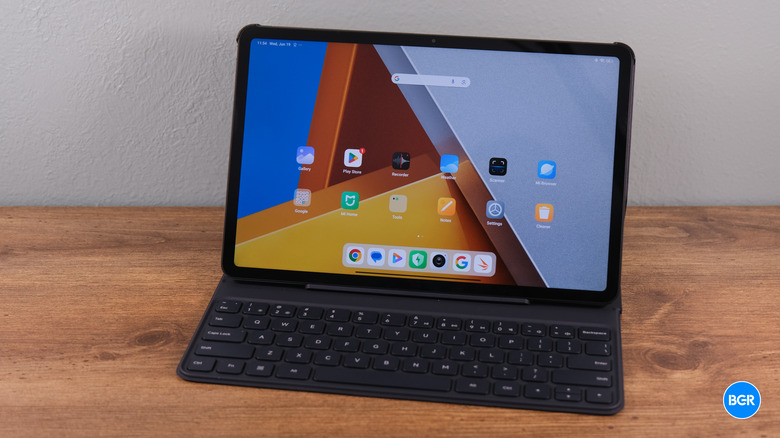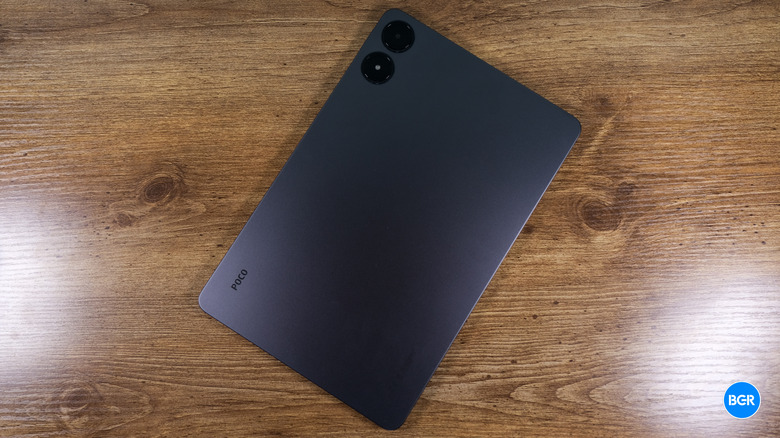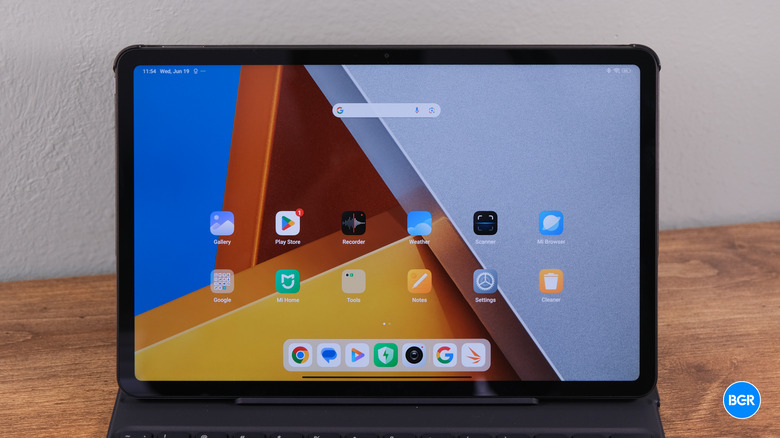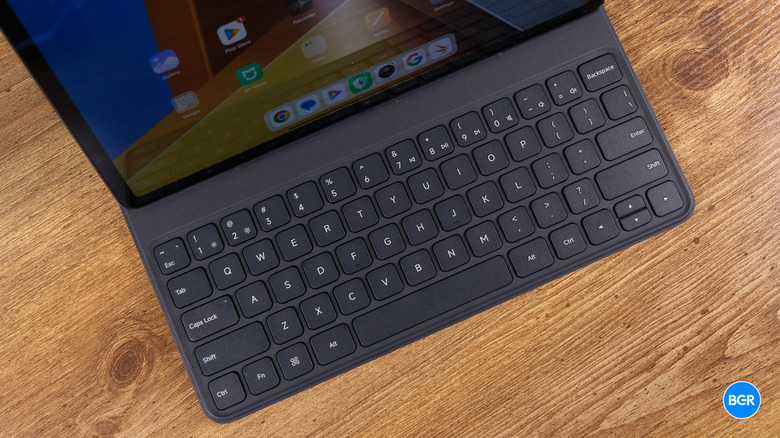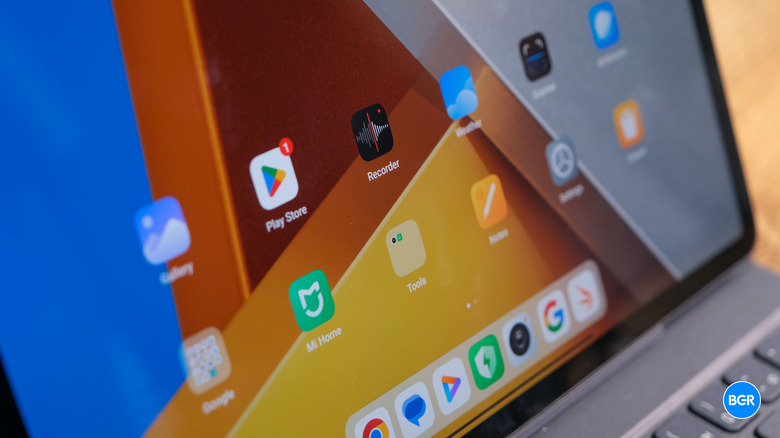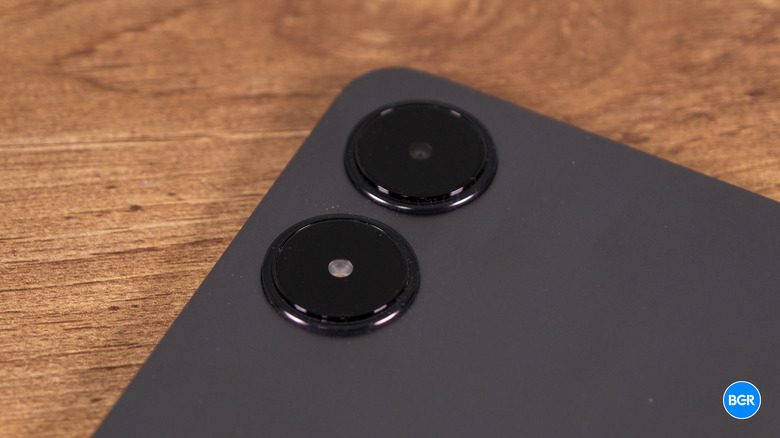Poco Pad Review: A Solid Android Tablet At A Reasonable Price
- Solid design and build
- Decent performance
- Inexpensive
- Cameras aren't good
- Android on tablets could be better
| Buy From | List Price | Sale Price | |
|---|---|---|---|
| Poco | $329 | $329 | See It |
| Amazon | $329 | $329 | See It |
We may receive a commission on purchases made from links.
The world of Android tablets is a bit of a strange place. Samsung has consistently released solid devices, but others have been relatively inconsistent, releasing new models every now and then but largely avoiding refinement over time. The newest player in the Android tablet game is Poco, which recently unveiled the new Poco Pad alongside the Poco F6 and F6 Pro smartphones.
The tablet was released alongside a keyboard and "Smart Pen" and is clearly aimed at being a do-it-all entertainment and productivity machine. It's also relatively affordable, starting at around $330 depending on the market — and that's cheaper than the base-model iPad.
But, of course, to hit that price point, the Poco Pad likely has to cut some corners. Does it do enough to be actually worth buying? I've been using the Poco Pad for a while now to find out.
Poco Pad specs
| Dimensions | 280 x 181.9 x 7.5 mm |
| Display resolution | 1600 x 2560 |
| Display size | 12.1 inches |
| Display type | LCD |
| Display refresh rate | 120Hz |
| Display brightness | 600 nits |
| Chipset | Qualcomm Snapdragon 7s Gen 2 |
| Memory | 8GB |
| Storage | 256GB |
| Rear camera | 8MP, f/2.0 |
| Video | 1080p at 30fps |
| Front camera | 8MP, f/2.0 |
| Ports | USB-C 2.0 |
| Battery size | 1,000mAh |
| Connectivity | Bluetooth 5.2, Wi-Fi 6 |
| Colors | Dark Gray, Blue |
| Price | Around $330 |
Sleek design
Despite the low price tag, the Poco Pad has a sleek and stylish design and a relatively premium build. The design is relatively thin, sitting in at 7.5mm, and while it's not even close to the thinness of the new iPad Pro, it still feels relatively sleek.
The Poco Pad actually has a 16:9 display, so it's a little wider than many other tablets. I prefer a slightly less wide display, but some might like the 16:9 aspect ratio that makes for a wider content area. The screen itself is solid-looking and is able to get quite bright. It's a high refresh rate display, so it feels smooth, and the colors are vibrant. It supports Dolby Vision, too, which is nice.
The Poco Pad has an aluminum frame and back, however it doesn't feel like metal, especially after having reviewed the new iPad models recently. It's not a huge issue though, and most will still find it to feel quite nice. Also on the back are two large camera modules — though only one actually contains a camera, with the other housing the flash. It's a bit overkill, but you'll get used to the design, and if you use a case or cover, you'll barely notice it.
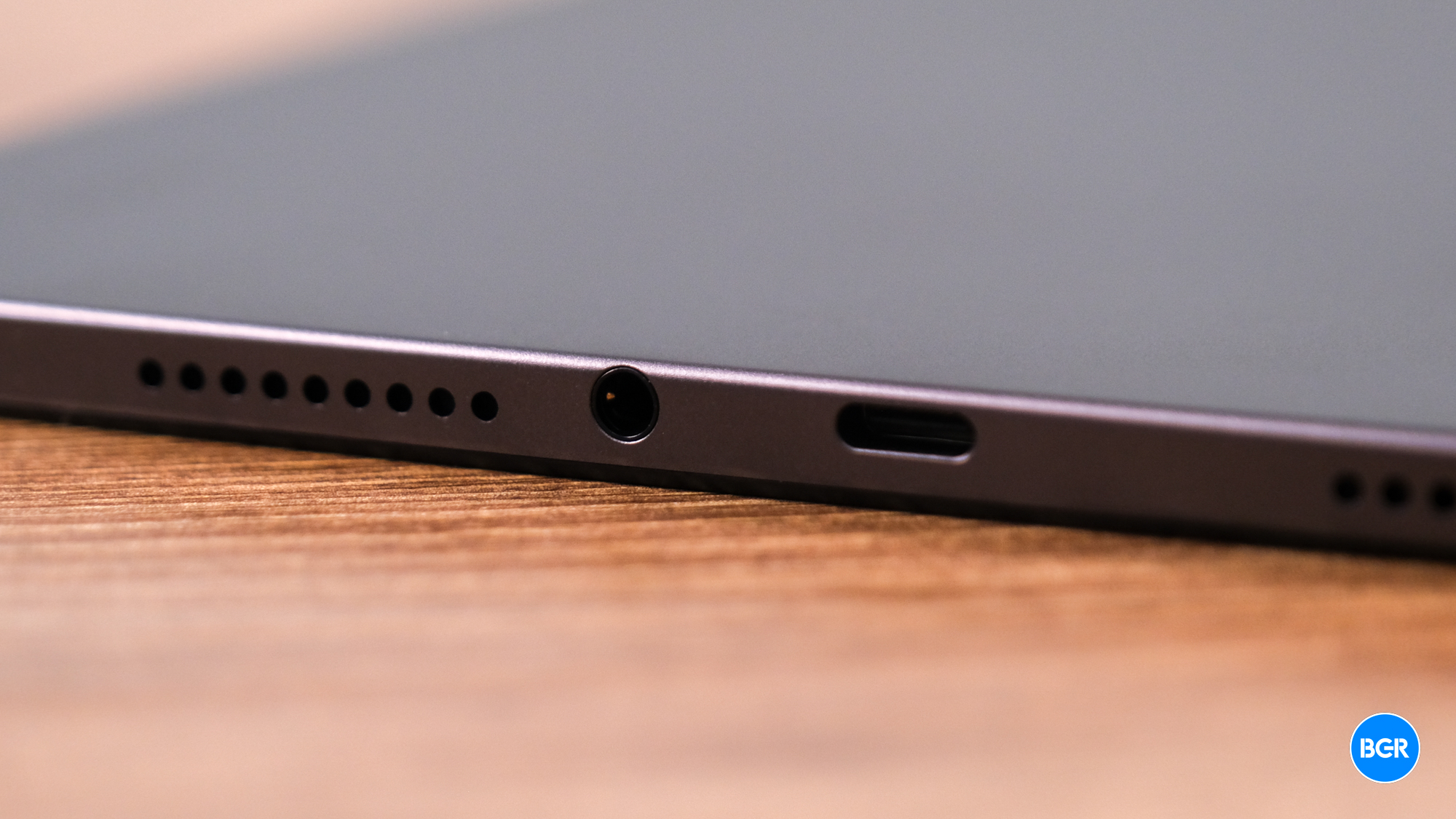
There are some slightly weird design touches — like the fact that the USB-C port and headphone jack are off-center. I don't love that, but it's obviously not the biggest issue.
Solid performance
The Poco Pad has a Snapdragon 7s Gen 2, which means that while it's not the best-performing tablet ever, it does deliver great mid-range performance at a reasonably low price. The chipset is coupled with 8GB of RAM, and I found that while its performance wasn't seamless, it was fast enough for most use cases.
Occasionally, the tablet would freeze up or stutter a little, which was a little disappointing, but for the most part, it handled multitasking and productivity reasonably well. Here are the benchmark results I achieved with the Poco Pad.
- GeekBench 6: 1,035 single-core, 3,005 multi-core
- 3DMark Wild Life Extreme: 793
These results are a little lackluster, especially when it comes to graphics performance. Again, the tablet performed fine in my use — though you might find it not to be that great when it comes to gaming.
Great pricing
At $329, the Poco Pad is very affordable. After having just reviewed a 13-inch iPad Air and 11-inch iPad Pro, I'm used to tablets being a little pricey, but the Poco Pad is even more affordable than the base iPad, which is $350. It's not much more affordable, though, and if you can stomach using iPadOS instead, I still recommend going for the iPad.
That said, if you prefer to stick to Android, the Poco Pad comes at a compelling price point.
Accessories aren't great
Alongside the Poco Pad, I was sent the Poco Smart Pen, Pad Keyboard, and Pad Cover. These accessories were fine, but a little pricey for the quality on offer. The Pad Keyboard, for example, comes at $80, and while the keys feel nice enough, I wish it offered a trackpad. All of the accessories connect through Bluetooth, which is fine — but I can't help but wish there was some kind of pogo pin connectivity on offer here.
The Smart Pen feels relatively natural and solid in the hand. I did find it confusing to connect — there aren't really any instructions, and pressing the buttons on the pen didn't really do anything. Turns out, you have to connect the two with a USB-C cable for initial pairing. I'm not much of an artist, so this isn't an accessory I use a lot. Keep in mind that by itself, the tablet doesn't have any way to store the Smart Pen — no magnetic attachments, for example. The Pad Keyboard does have a loop you can use for Smart Pen storage, though, which is nice.
No biometric authentication
The Poco Pad doesn't have any kind of biometric authentication, apart from a basic camera-based facial recognition that's not really all that secure or accurate. I really wish the device had a fingerprint sensor, whether it be in the power button or under the display. It would have made a big difference in making it easier to enter the tablet.
Android on tablets isn't the best
This is a bit of a tired argument, but while it has gotten better, Android on tablets is still not where it should be. Much of that comes down to developer support, which, again, is getting better but still isn't great.
Most users will be able to get by with the software here, and Poco has built some handy software features into the tablet to make using it easier. Poco uses Xiaomi's HyperOS, and it offers tricks like the ability to mirror an Android phone screen, which can help in some multi-device situations. I didn't love the extra apps pre-installed on the tablets, though, such as Netflix and WPS Office. These apps may be handy for you, but you should be able to decide to install them when you first get the tablet.
Cameras aren't good
I don't really care all that much about the cameras on a tablet — but in case you do, they're not the best. On both the front and the back, the Poco Pad offers 8-megapixel cameras with an f/2.0 aperture, and photos taken with the device look relatively low-quality. The camera is fine for video calling, but don't expect to take very detailed or vibrant photos.
Conclusions
The Poco Pad is a solid device, for the right person. It's inexpensive, and offers solid performance and a sleek design — but if things like a great camera are important to you, then you'll want to keep looking. All that said, the Poco Pad represents a great choice for those who don't want to spend much.
The competition
In the $350 price range, there aren't a ton of great options — many of the best Android tablets, like the OnePlus Pad and the Galaxy Tab S9 FE cost at least $450 or so. If you're looking for a great tablet in this price range, you should consider buying the 10th-generation iPad, but if you want to stick to Android, the Poco Pad is the way to go. That is, of course, if the tablet is even available in your region.
Should I buy the Poco Pad?
Yes, but only if you really want an Android tablet in the $350 price range.
